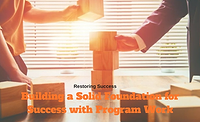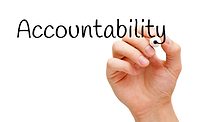A couple signs that this Gen X business person is getting older: I wear Sketchers to work (sometimes), I bought reading glasses, and I complain with other Gen Xers and Baby Boomers about Millennials.
As I began to ponder and research this topic more, it became abundantly clear that changes in generation are a fact of business that should not be ignored for a variety of reasons. The definition a generation is, “group of individuals, most of who are the same approximate age, having similar ideas, problems, and attitudes, etc.” That definition tells us we must understand, engage, and be aware of generations because they are our customers, our workforce, and our friends and neighbors.
As a point of reference, the following is a breakdown according to The Center for Generation Kinetics:
- iGen, Gen Z or Centennials: Born 1996 and later
- Millennials or Gen Y: Born 1977 to 1995
- Generation X: Born 1965 to 1976
- Baby Boomers: Born 1946 to 1964
- Traditionalists or Silent Generation: Born 1945 and before
The statistics are out, according to expandedramblings.com, Millennials:
- Make up 27% of the U.S. population
- Make up 25% of the workforce
- 83% text more than talk on their smartphone
- 81% check Twitter at least once per day
Another reality is that the Boomers complained about the Gen Xers, and this will likely be a perpetual cycle with generational changes.
As restorers, we need to set aside our frustration with this change in our workforce (and customers) and begin to embrace, manage, and as Simon Sinek reminds us, lead. Complaining about Millennials will get us nowhere; however, being organizations and professionals that lead and welcome Millennials to grow, develop, and engage them in our organizations will get us everywhere.
What are we to do about these Millennials?
- As with every generalization, all millennials are not the same and we should work with each as an individual.
- Watch the following Simon Sinek Video, Understanding the Game We are Playing. It changed my perspective a bit and gave me some great ideas to use within my restoration company. A few of my takeaways are:
- I need to adapt and change as I would with anything else that has changed and affects my organization.
- Focus on achieving desired results.
- We are the leaders now and should be developing the leaders of tomorrow.
- We need to understand and engage the generation.
- Stay up to date on the latest generational information, ideas, and research by engaging with authorities on the subject. As an example, The Center for Generation Kinetics has a blog that supplies great information.
- Communication: Make some changes in your communication procedures. If you are still putting paper memos in mailboxes, try utilizing group text options for disseminating information. With customers, ask them how they prefer to be communicated with regarding their job. If they want to be texted, text them job updates.
- Management: Consider accommodating Millennials by changing or tweaking some of your current engagement tools, review processes, commendations, etc. Review your development and training programs to make sure they are designed to not only engage Millennials, but also allow them to develop some of the skills, like soft skills, that they may be lacking as a generation.
- Think about their strengths as a generation and how you can create opportunities to utilize them to have an impact on your organization.
- Encourage them to engage positively with your company’s social media.
- Ask them to help pilot and integrate the new technology in your company both in the office and in the field. Millennials will rarely flinch at the notion of downloading a new application to monitor a water loss or inventory contents.
- Figure out what makes them tick, what makes them content, what makes them happy. No, you don't need to cater to their every whim, but it might be time to adjust your thinking of normal business hours and workdays. This industry doesn't allow for much flexibility in schedule and hours, but still explore other options - like making sure you have a rich company culture.
- Don't assume all Millennials feel entitled or deserving. Most as just as hard working as the rest of us, they just work a little different. For example, it's nothing for a Millennial to take a laptop home and work in the evening, in exchange for coming in a little late one morning to have breakfast with a friend. Many thrive on efficiency, and are willing to do the extra work.
Don’t be so offended by the Millennial who texted during a meeting. Perhaps he is texting a Millennial customer a job update. Instead of being insulted and offended by the text, think about engaging and embracing them. Text a technician a good job note and follow it up with a face-to-face commendation.
As for you, Millennials, be patient with us Xers and Boomers. Don’t be offended if we ask you to put your device down and talk to us. There is much to learn amongst generations. Your company will be well served by understanding Millennials both as your workforce and your customers.





Report Abusive Comment